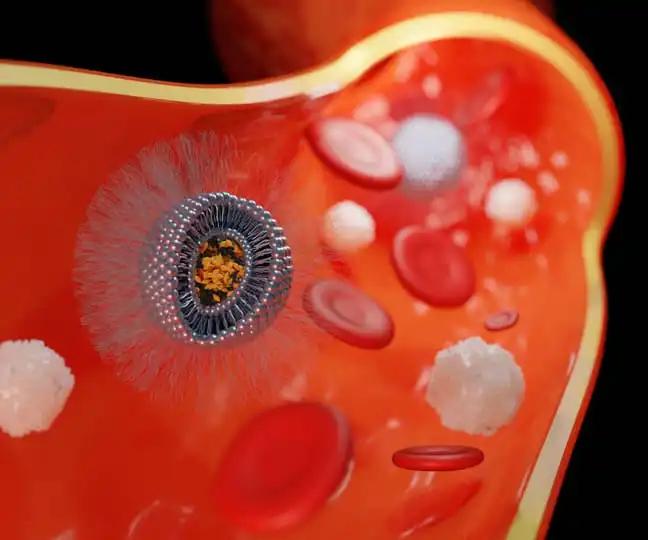KEY TAKEAWAYS
- The phase 2 DESTINY-CRC01 trial (NCT03384940 ) aimed to evaluate the efficacy and safety of T-DXd in patients with HER2-expressing (mCRC).
- Patients with HER2-expressing, RAS wild-type mCRC that progressed after prior regimens were enrolled in the study. T-DXd was administered at a dose of 6.4 mg/kg every 3 weeks.
- The study demonstrated promising antitumor activity and durability in patients with HER2-expressing mCRC.
TDXd, an antibody-drug conjugate binding anti-HER2 antibody to a topoisomerase I inhibitor, demonstrated promising antitumor activity and manageable safety in the phase 2 DESTINY-CRC01 study (DS8201-A-J203; NCT03384940). With an extended follow-up (median 27.1 weeks, cohort A), the researchers aimed to evaluate the long-term efficacy and safety data in patients with HER2-expressing mCRC. Patients (pts) included in the study had centrally confirmed metastatic colorectal cancer (mCRC) with HER2 expression and wild-type RAS mutations, which had progressed after receiving at least two prior treatment regimens. T-DXd (6.4 mg/kg ) was given every 3 weeks (Q3W) in cohorts (A: HER2 IHC3+ or IHC2+/ISH+; B: IHC2+/ISH−; C: IHC1+). The primary endpoint was to measure the objective response rate (ORR) in cohort A, while secondary outcomes included disease control rate (DCR), duration of response (DOR), progression-free survival (PFS), and overall survival (OS). As of the data cutoff on December 28, 2020, a total of 86 pts (A, 53; B, 15; C, 18) got T-DXd. The median pts age was 58.5 (range, 27-79),which 53.5% were male. A total of 90% pts had colon or rectum cancer. The median number of prior regimens for metastatic disease was 4 (range, 2-11), and all patients had received prior irinotecan. In cohort A, 30.2% had prior anti-HER2 therapy. The median duration for all pts was 3.0 mo (95% CI, 2.1-4.1; cohort A, 5.1 mo [95% CI, 3.9-7.6]). The confirmed ORR was 45.3% (24/53 pts; 95% CI, 31.6-59.6) in cohort A (median FU, 62.4 weeks) and 83.0% (44/53 pts; 95% CI, 70.2-91.9) was DCR, the median (m) duration of response (DOR) was 7.0 months (95% CI: 5.8-9.5), mPFS was 6.9 mo (95% CI, 4.1-8.7) with 37 (69.8%) PFS events and the mOS were 15.5 months (95% CI: 8.8-20.8) with 36 (67.9%) OS events. The results were consistent with the primary analysis. Pts with prior anti-HER2 therapy, ORR was 43.8% (7/53 pts; 95% CI, 19.8-70.1). For pts with IHC3+ status 57.5% (23/53 pts; 95% CI, 40.9-73.0) and pts with IHC2+/ISH+ status 7.7% (1/53 pts; 95% CI, 0.2-36.0). In cohorts B and C, mPFS was 2.1 months (95% CI, 1.4-4.1) and 1.4 mo (95% CI, 1.3-2.1), respectively. The mOS was 7.3 months (95% CI: 3.0-NE) for cohort B and 7.7 months (95% CI: 2.2-13.9) for cohort C. For grade (G) ≥3, treatment-emergent adverse events (TEAEs) showed in 65.1% of pts (56/86); hematologic and gastrointestinal were the most common TEAEs. Furthermore, the drug was discontinued in 13 pts (15.1%). Interstitial lung disease (ILD), as determined by an independent committee, was reported in 8 patients (9.3%) and classified T-DXd (4 G2; 1 G3; 3 G5).
With long-term follow-up, Tthe study revealed promising antitumor activity and durability in patients with HER2-expressing mCRC. The safety profile was consistent with previous findings, with interstitial lung disease (ILD) being an identified risk that requires careful monitoring. These results support further investigation of T-DXd in this patient population.
Source: https://meetings.asco.org/abstracts-presentations/205223
Clinical Trial: https://classic.clinicaltrials.gov/ct2/show/NCT03384940
Takayuki Yoshino, Maria Di Bartolomeo, Kanwal Pratap Singh Raghav, Toshiki Masuishi, Hisato Kawakami, Kensei Yamaguchi, Tomohiro Nishina, Zev A. Wainberg, Elena Elez, Javier Rodriguez, Marwan Fakih, Fortunato Ciardiello, Kapil Saxena, Kojiro Kobayashi, Emarjola Bako, Yasuyuki Okuda, Gerold Meinhardt, Axel Grothey, Salvatore Siena DOI: 10.1200/JCO.2022.40.4_suppl.119 Journal of Clinical Oncology 40, no. 4_suppl (February 01, 2022) 119-119.



